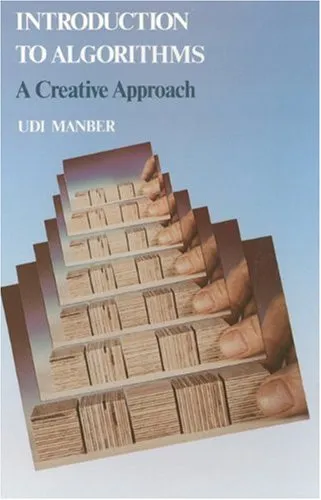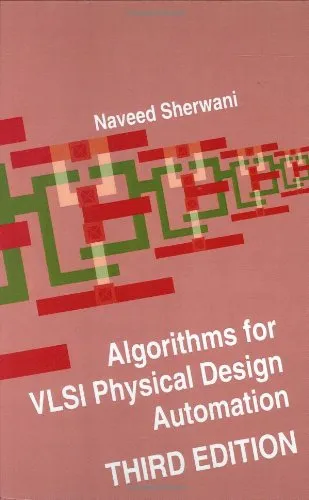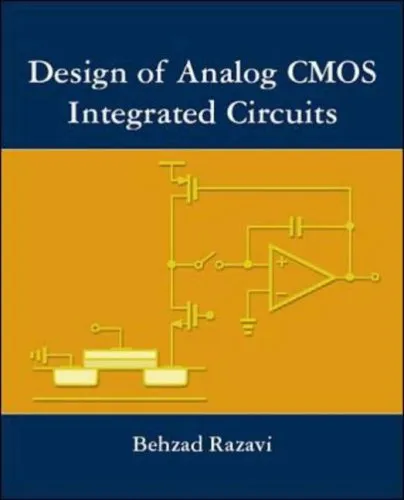VLSI Design Methodology Development
4.0
Reviews from our users

You Can Ask your questions from this book's AI after Login
Each download or ask from book AI costs 2 points. To earn more free points, please visit the Points Guide Page and complete some valuable actions.Related Refrences:
Welcome to the official introduction to "VLSI Design Methodology Development", a comprehensive guide that delves deeply into the methodologies, frameworks, and best practices surrounding very-large-scale integration (VLSI) design. Authored by Thomas Dillinger, this book serves as a cornerstone for aspiring engineers, students, and industry professionals seeking to understand and implement cutting-edge VLSI methodologies. Whether you're an experienced ASIC designer or new to the complex landscape of semiconductor technologies, this book provides invaluable perspectives and tools to enhance your knowledge and skills.
Summary of the Book
In an era where semiconductor technology forms the backbone of modern computing and communication, effective VLSI design methodology has never been more critical. "VLSI Design Methodology Development" unpacks the intricate process of designing complex chips, detailing how these methodologies have evolved over decades to address scale, efficiency, and performance challenges.
The book opens by establishing the historical context of VLSI design, charting the growth of semiconductor technologies from their inception to their present-day dominance in industries such as telecommunications, automotive, and artificial intelligence. It moves into practical design methodologies, providing a step-by-step breakdown of essential concepts like cell-based design, design for manufacturability (DFM), power optimization, and clock tree synthesis (CTS).
One of the book's unique strengths is its focus on the interplay between design and development flows, exploring essential stages such as RTL design, verification, physical implementation, and tape-out processes. In addition, the book examines the importance of automation, emphasizing the role that EDA tools play in making VLSI design reliable and attainable at scale. The narrative is further enriched with real-world case studies, offering firsthand insights into challenges and their solutions in contemporary projects.
Key Takeaways
Readers of "VLSI Design Methodology Development" will emerge with a well-rounded understanding of both foundational principles and advanced concepts in VLSI development. Below are some of the most valuable insights:
- An in-depth understanding of the end-to-end VLSI design process, from concept to silicon.
- The role of design methodologies in striking a balance between performance, cost, and energy efficiency.
- How to optimize workflows by leveraging EDA tools and automation technologies.
- Best practices for addressing challenges such as power management, heat dissipation, and geometrical scaling.
- A detailed exploration of the synergies between hardware design and software co-development.
- Real-world lessons drawn from complex design cases in the semiconductor industry.
Famous Quotes from the Book
"VLSI design is not just about creating circuits; it’s about engineering solutions that will power the world tomorrow."
"The true challenge in VLSI design lies in orchestrating complexity while maintaining reliability and simplicity."
"Automation tools are essential, but engineering ingenuity is irreplaceable in crafting elegant solutions."
Why This Book Matters
The significance of "VLSI Design Methodology Development" extends beyond the technical domain. Semiconductor technology drives innovation in a world increasingly reliant on devices and AI systems. This book presents the intricacies of VLSI design in a way that is both accessible and enlightening, empowering individuals to contribute meaningfully to this dynamic field.
For students and beginners, the book serves as a foundational text that demystifies complex concepts and introduces industry-standard practices. For professionals, it acts as a repository of advanced methodologies and real-world insights that can be directly applied in day-to-day projects. Additionally, by addressing critical issues like design optimizations at nanometer scales and the integration of artificial intelligence in EDA tools, the book positions itself as an essential resource for those aiming to stay ahead in this rapidly evolving domain.
In bridging academia and industry, this book contributes to shaping the future of VLSI design. With its careful blend of theory, practicality, and innovation-driven perspectives, it provides a guiding light for those ready to take their understanding of VLSI to the next level.
Free Direct Download
You Can Download this book after Login
Accessing books through legal platforms and public libraries not only supports the rights of authors and publishers but also contributes to the sustainability of reading culture. Before downloading, please take a moment to consider these options.
Find this book on other platforms:
WorldCat helps you find books in libraries worldwide.
See ratings, reviews, and discussions on Goodreads.
Find and buy rare or used books on AbeBooks.
1640
بازدید4.0
امتیاز0
نظر98%
رضایتReviews:
4.0
Based on 0 users review
Questions & Answers
Ask questions about this book or help others by answering
No questions yet. Be the first to ask!














